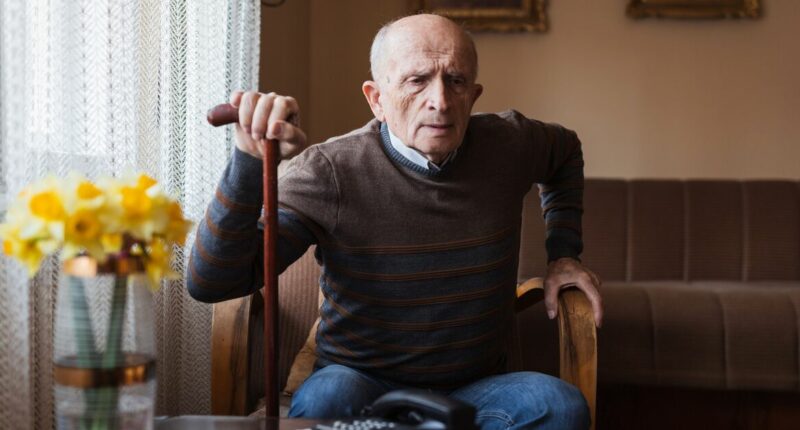Share this @internewscast.com
A neurologist has revealed a straightforward 10-second test that might indicate a person’s risk of dementia. According to this expert, the test identifies “early dysfunction” in certain brain areas.
Dementia is a syndrome characterized by a collection of symptoms linked to the progressive decline of brain function. Primarily affecting individuals over 65, it often results in memory problems and changes in behavior.
Sometimes, the signs of dementia only become noticeable once the condition has advanced. Nonetheless, there are methods to assess your risk of developing dementia ahead of time.
In a video posted on TikTok, neurologist Doctor Baibing Cheng, who is popularly known online as Dr. Bing, shared methods to test your dementia risk, including a simple 10-second test.
“Here are five signs that someone might be at risk for dementia, he said. “Number one is the inability to stand on one leg for at least 10 seconds.
“If you’re 70 years or younger (and have legs), you should be able to complete this test. Failure to do so is associated with an increased risk of dementia, as impaired balance signifies early dysfunction in brain regions responsible for motor control, like the cerebellum and basal ganglia, which are also affected in neurodegenerative processes.”
His advice is backed by a study published in the Journal of Alzheimer’s Disease in 2009. In a trial involving more than 680 participants, researchers observed that individuals unable to stand on one leg for five seconds were at a higher risk of cognitive decline during Alzheimer’s disease.
Study authors wrote: “An abnormal one-leg balance test is a marker of more advanced dementia and predicts a higher rate of cognitive decline.” And a separate study from 2015, showed that balancing on one leg may indicate if a person is at risk of dementia or stroke.
More specifically it was concluded that an inability to stand on one leg for more than 20 seconds was associated with microbleeds and “silent” strokes. Lead researcher Dr Yasuharu Tabara, from Kyoto University in Japan, said: “Our study found that the ability to balance on one leg is an important test for brain health.
“Individuals showing poor balance on one leg should receive increased attention, as this may indicate an increased risk for brain disease and cognitive decline.”
Dr Bing added four other ways to test for dementia risk.
Body weight squat
The inability to do a body weight squat could also signify cognitive decline. He said: “This is usually tested using a chair stand test or a sit to stand test and the inability to do this is associated with dementia risk because poor lower limb strength and mobility indicate early decline in neural circuits involved in both motor and cognitive function.”
Acting out dreams
He explained: “If someone is frequently kicking screaming or punching their partners in bed this can be seen in REM sleep behaviour disorder (RBD) and is a strong predictor of future dementia especially synucleinopathies like Lewy body dementia and Parkinson’s disease. This happens because in RBD there is early degeneration of brainstem structures that regulate REM sleep.”
Find out about the symptoms you need to watch out for and get health advice with our free health newsletter from the Daily Express
Loneliness
“This is associated with increased dementia risk due to chronic activation of stress pathways increased inflammation and reduced neurotrophic support, which leads to accelerated nerve degeneration,” he said. “Loneliness is also linked to reduced grey matter volume and also altered BDNF expression which can lead to cognitive decline.”
Hand grip strength
He added: “This reflects overall physical frailty and is correlated with reduced brain volume and impaired executive function.”












